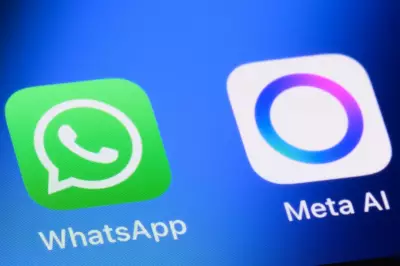
The landscape of artificial intelligence is taking a provocative turn as sophisticated chatbot technology, including systems powered by ChatGPT, is being repurposed to create increasingly intimate AI girlfriend experiences. What began as simple conversational agents has evolved into a booming industry of virtual companions that are now venturing into explicit adult territory.
The Uncharted Territory of Artificial Intimacy
Recent investigations have uncovered that numerous AI companion apps available through major platforms like the Apple App Store are pushing boundaries far beyond casual conversation. These digital partners are being programmed to engage in sexually explicit dialogues and scenarios, creating a new frontier in human-AI interaction that existing regulations are struggling to contain.
When Algorithms Learn to Love
The technology underpinning these virtual relationships has advanced dramatically. Unlike earlier generations of chatbots with limited responses, modern AI girlfriends can:
- Remember personal details and conversation history across multiple sessions
- Adapt their personality and responses based on user preferences
- Generate increasingly sophisticated romantic and intimate dialogue
- Create the illusion of emotional connection and mutual affection
The Regulatory Grey Zone
This rapid evolution has created significant challenges for tech regulators and platform operators. The Apple App Store, which maintains strict guidelines against overtly sexual content, finds itself navigating the ambiguous territory of AI-generated intimacy. While explicit imagery might be prohibited, the boundaries for text-based adult interactions remain frustratingly unclear.
The Psychological Implications
Mental health professionals are expressing growing concern about the potential consequences of these artificially intimate relationships. The danger lies not just in the content itself, but in the emotional dependency these AI systems can cultivate. Users may find themselves developing genuine attachments to algorithms designed to simulate affection, raising questions about:
- The impact on real-world social skills and relationships
- Potential exploitation of vulnerable individuals seeking companionship
- The ethical responsibility of developers creating these emotional bonds
- Long-term psychological effects of human-AI romantic entanglement
The Industry Response
Major AI developers, including OpenAI behind ChatGPT, are increasingly aware of how their technology is being adapted. Many are implementing stricter usage policies and content filters, but the cat-and-mouse game continues as developers of companion apps find creative ways to work around restrictions.
The future of artificial intimacy hangs in the balance, caught between technological innovation, commercial opportunity, and urgent ethical considerations. As these AI companions become more sophisticated and emotionally convincing, society faces difficult questions about the nature of relationships, consent, and what it means to be human in an age of artificial connection.





